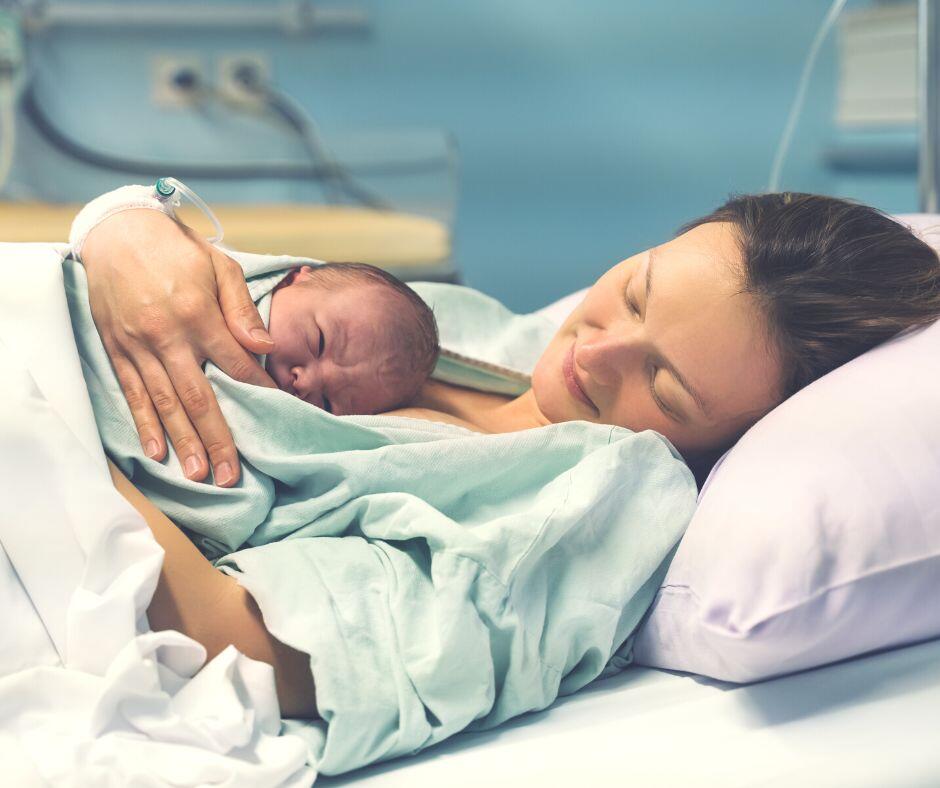The Birth Mom’s Right to Make Choices at the Hospital
October 27, 2023

In Texas, a woman cannot sign papers relinquishing her parental rights until at least 48 hours after delivering her baby. Until paperwork is completed, she is the legal parent of her child, and has the right to make all choices concerning her hospital experience and newborn’s care.
Unless she has expressed otherwise, hospital professionals should treat biological mothers with adoption plans the same as any other new mother. Asking adoptive parents for their input or opinions is not appropriate and should be avoided, unless the birth mother has authorized them to make decisions on her behalf.
Choices Begin with the Hospital Plan
As part of the adoption planning process, the biological mother and adoption professional will work together to create a customized hospital plan. The adoption agency will share the hospital plan with the hospital’s social worker prior to the client’s estimated due date, or date for scheduled c-section or induction.
This hospital plan document includes many of the same components common in a typical birth plan, including:
- Whether to have an epidural or natural childbirth
- Who will support her in the delivery room
- Who will cut the cord
- Who will hold the baby first
- Whether or not she wants photos or video taken during labor
- Whether or not to breastfeed
- What name should go on the birth certificate
- If her baby is a boy, should he be circumcised
With an adoption plan, there are additional choices to make regarding the adoptive parents. She can involve the adoptive parents as much or as little as she would like. These are a few of the questions the agency will ask:
- Do you want to notify the adoptive parents when you go into labor, or would you like the agency to handle communications?
- Would you like the adoptive parents to be at the hospital during labor? Delivery?
- Would you like the adoptive family to have access to your baby at the hospital?
- How much time would you like to spend with your baby in the hospital?
What If She Doesn’t Want to Be Involved?
A biological mom’s level of involvement is another choice she can make, and not every women wants to be in complete control. Sometimes, she has built a strong relationship with the adoptive family and wants to include them in the decision-making process. At other times, she may want to defer to the adoptive family altogether.
Occasionally, a mother prefers to have less involvement with her baby. If an adoptive family has not been chosen yet – this primarily happens with women who have not made an adoption plan prior to delivering – she can authorize the adoption agency to step in and make decisions regarding the baby’s care.

The Biggest Choice She Will Make at the Hospital
The biggest choice biological moms will make is whether or not to move forward with placing her baby with an adoptive family, and for most women this happens at the hospital.
After the baby is born and the mother has had time to rest, an adoption agency counselor will visit her at the hospital. First, we want to make sure that both mother and baby are healthy and receiving good care. Then, we’ll begin discussing how she feels about adoption now that her baby is here. For many women, having their baby in their arms can change how they feel – or at least make things more complicated. If she needs more time to process, there is no pressure to make a choice immediately. She can choose to take her baby home after discharge or, in some cases, Adoption Advocates can offer temporary care for the baby.
She can also choose to move forward with the adoption while at the hospital. If so, her counselor will review the relinquishment documents with her one final time, and she is free to sign 48 hours after delivery.
How Can Hospital Professionals Support Birth Mothers
There are no right or wrong choices for a birth mother to make when it comes to her hospital plan. What’s most important is that she makes the choices that feel right to her, and she feels supported by those around her – especially the nurses and social workers caring for her in the hospital.
A recent study published by adoption organizations Bravelove and the National Council for Adoption surveyed more than 1000 birth parents to gain deeper insights into their adoption experience and satisfaction levels. While many of the statistics show positive trends, one really stood out to us:
In more modern adoptions, more than 31% of birth mothers felt stigmatized for choosing adoption by health care professionals.
A woman choosing to place her baby with an adoptive family is making one of the hardest decisions of her life, and putting her child’s best interest before her own. She deserves unbiased support and compassion from all of those around her, but especially the professionals caring for her.
As a hospital professional, it’s important not only to be aware of the birth mother’s rights, but to understand the emotional and challenging process she has been through. All staff providing care for a birth mother at the hospital should be aware that she has made a hospital plan, so that they can be sensitive to the fact that she may not be leaving with her baby.
Expressions of grief and uncertainty are normal during her time at the hospital, and are not necessarily indicators that adoption is a wrong choice. If you have concerns that she might need extra support, try to avoid value or biased statements like “Are you sure about this?” or “You know you don’t have to do this.” and instead ask open-ended questions like “How are you feeling about adoption now?” If she is struggling with the decision, it’s best to defer to the social worker to support her and make sure she is not being pressured into her decision.
While the end of her hospital stay will be a difficult time, hospital staff can have a significant impact on her overall experience by advocating for her rights and providing judgment-free support. If you have any questions about how adoption situations should be handled at the hospital, we’re happy to answer. Please reach out to Adoption Advocates at (512) 477-1122 or [email protected].




